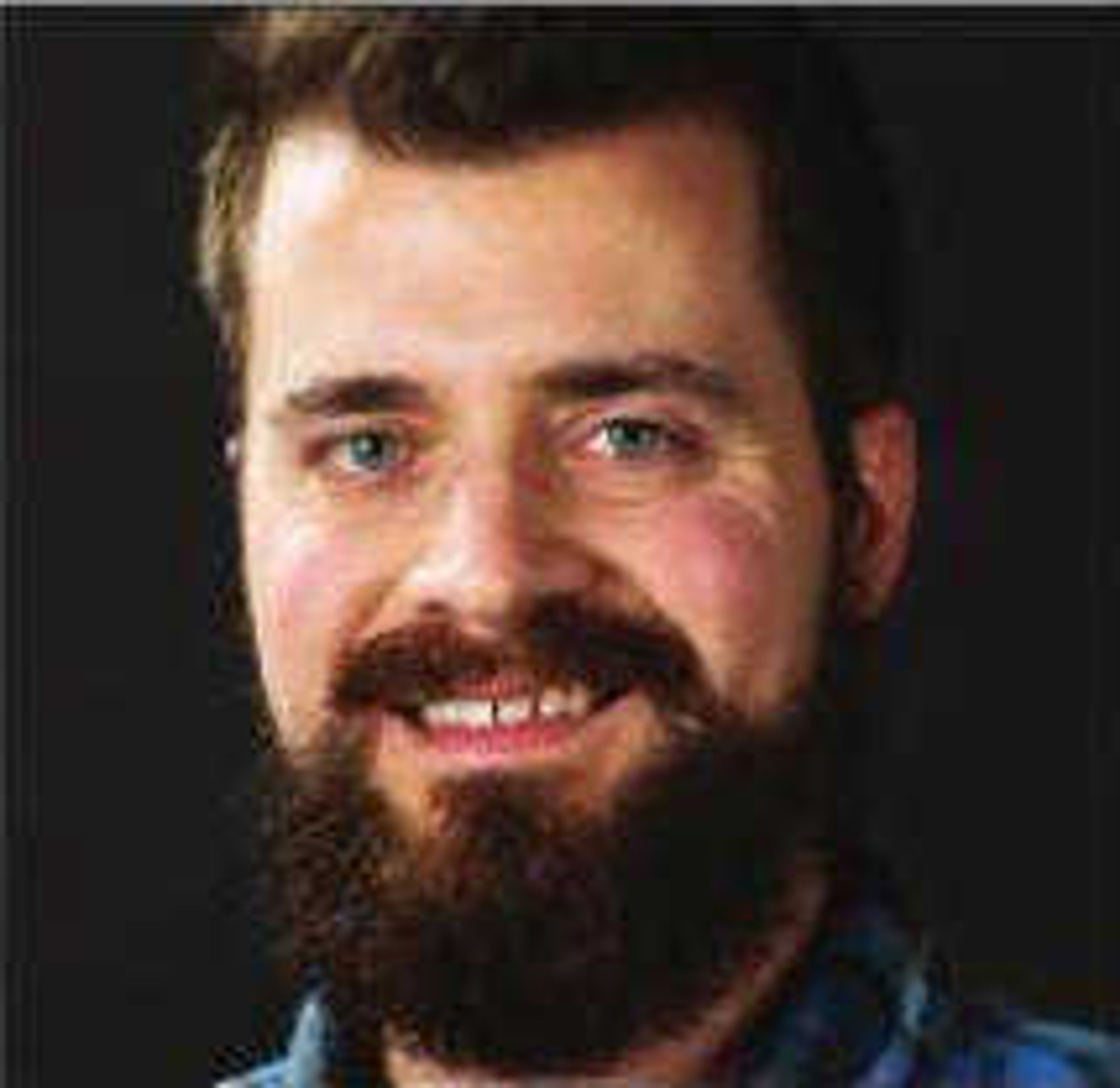150 years later: Remembering Louis Houck, ‘the Father of Southeast Missouri’
Sunday marked 150 years since Louis Napoleon Houck — lawyer, rebuilder of Academic Hall and architect behind 500 miles of railroad track in Southeast Missouri — first stepped foot in Cape Girardeau. To commemorate, Southeast Missouri State University professor of history Joel Rhodes spoke about Houck’s life to a crowd Saturday at the Cape River Heritage Museum in Cape Girardeau...
Sunday marked 150 years since Louis Napoleon Houck — lawyer, rebuilder of Academic Hall and architect behind 500 miles of railroad track in Southeast Missouri — first stepped foot in Cape Girardeau.
To commemorate, Southeast Missouri State University professor of history Joel Rhodes spoke about Houck’s life to a crowd Saturday at the Cape River Heritage Museum in Cape Girardeau.
“We think of [Houck] as a railroader; I don’t know that he always considered himself as such. His interests were so vast,” Rhodes said.

Railroading was just one facet of Houck’s life, he said, adding, “I think in his heart, he thought of himself as a historian.”
Rhodes said that for years, Houck’s five-volume history of early Missouri was known as “definitive” during its time.
Houck also was moderately decent lawyer by trade, Rhodes said, with several business interests, including a pottery factory near where the Federal Courthouse is now in downtown Cape Girardeau.
But Rhodes went on to describe Houck as an incredibly shrewd businessman, uncompromising and “a very prickly character.”
And to say Houck “married well” would be a tremendous understatement, Rhodes said.
Houck married Mary Hunter Giboney in 1872. She was the only surviving daughter to the largest landowning family in Southeast Missouri and Southern Illinois — nearly 8,000 acres.
“To see Mary, that must’ve appealed to him dramatically, because she is this princess that lives in a castle, Elmwood. And so the romantic in Louis certainly was inspired by that,” Rhodes said, adding, “but all that land didn’t hurt either.”
From that point, Houck was actively engaged in any type of business proportion that could accentuate their fortune, Rhodes said.
They were cash poor, and land rich, Rhodes said, so Houck’s business schemes generally were designed to try to ameliorate the couple’s landholdings.
In the summer of 1880, Houck thought about the idea of a railroad, Rhodes said. He believed that in the grand scheme of things, the railroad was necessary for Southeast Missouri to develop.
Fast-forwarding a bit, Houck soon had three imperfect railroad systems under his belt: St. Louis, Cape Girardeau and Fort Smith Railroad; St. Louis, Kennett and Southern and Allied Lines; and the Cape Girardeau Northern.
Known as “Houck Lines,” those railways, more than anything, Rhodes said, opened up the region to economic development and cultural development.
Rhodes said one of his favorite Houck stories is about a debate — whether to build what is now known as Southeast Missouri State University.
Houck’s first idea was to build a prison here, Rhodes said. At the time, the State of Missouri also was looking for a branch of the state prison.
But eventually, and obviously, Rhodes said, “We got the university and not the prison.”
Houck’s rationale for the idea was, he said, “If we had the choice between the teachers college and the prison, at least he knew that the prison enrollment would be steadier. ...”
And even though Houck never mastered the art of railroading, according to Rhodes, “It doesn’t negate the fact that he did something here that nobody else was able to do.”
“So, I think [referring to Houck as] the Father of Southeast Missouri does him justice,” he said.
From 1896 to 1908 are what Rhodes categorized as Houck’s “most productive years.”
During that time, Houck was busy operating three railroads, writing his history of Missouri, overseeing the rebuilding of Academic Hall after the original building burned in 1902 and his several various business interests.
Rhodes also spoke of Houck’s focus and energy. He said Houck possessed a Type A personality, one that was incredibly driven, allowing him to discipline himself.
And while Houck’s story “is a Southeast Missouri Story,” Rhodes said, it’s also “a very American story.”
“He came from that generation of Americans that, through sheer force of will, built the country,” Rhodes said. “He didn’t have a great deal of actual education; he was a self-taught man. But his vision, instincts and his drive really refashioned this part of the world.”
Houck was born April 1, 1840 in St. Clair County, Illinois. He died Feb. 18, 1925 in Cape Girardeau.
Aside from authoring “A Missouri Railroad Pioneer: the Life of Louis Houck,” Rhodes also has written “The Sixties in the Lives of American Children: Growing Up in a Land Called Honalee,” “The Voice of Violence: Performative Violence as Protest in the Vietnam Era,” “Haunted Cape Girardeau: Where the River Turns a Thousand Chilling Tales” and co-authored “Historic Cape Girardeau: an Illustrated History.”
The museum is open noon to 4 p.m. Thursdays, Fridays and Saturdays. Admittance is free.
jhartwig@semissourian.com
(573) 388-3632
Connect with the Southeast Missourian Newsroom:
For corrections to this story or other insights for the editor, click here. To submit a letter to the editor, click here. To learn about the Southeast Missourian’s AI Policy, click here.










